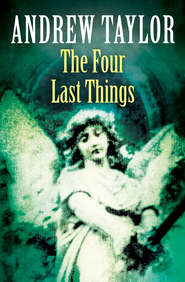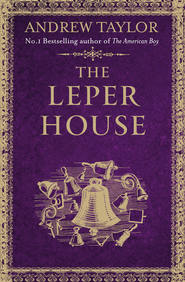По всем вопросам обращайтесь на: info@litportal.ru
(©) 2003-2024.
✖
The Scent of Death
Автор
Год написания книги
2018
Настройки чтения
Размер шрифта
Высота строк
Поля
All of us in the Department knew the power of that one word, Minden. Lord George Germain had everything the world could offer – rank, wealth, position, the confidence of his sovereign – but the memory of the battle of Minden was a curse on him he had never contrived to exorcise. Nearly twenty years earlier, he had commanded the British cavalry against the French at the battle. He was widely believed to have disobeyed an order to attack, which had led to many casualties. He had been court-martialled and censured; some said he was lucky to have escaped execution, others that he had been cruelly misjudged. His wealth, connections and ability had enabled him to put the affair behind him. But the army remembered.
‘Putting that on one side for a moment, sir,’ I said quickly. ‘You implied on our way here that Judge Wintour has had his difficulties.’
‘Poor man. He has suffered a deal of sorrow in the last few years. He does not go much abroad now, either – so you may find he is not au courant with—’
There was a knock at the door. A footman entered with a letter. Murmuring an apology, Mr Townley broke the seal and unfolded the sheet of paper. Breathing heavily, he held it at arm’s length and read the contents with a frown deepening on his forehead.
He looked up. ‘I regret, sir, I’m called away.’ He tapped the letter. ‘Talk of the devil, eh? This comes from the Major himself. They have found a body in Canvas Town. So that was why he was not in the way at Headquarters.’
‘Perhaps I should accompany you, sir? After all …’
He nodded, taking my meaning, for his understanding was as quick as any man’s. ‘Indeed – if you are not too fatigued, of course. This is just the sort of affair for you. By the way, Marryot writes that, judging by his dress, the dead man was a gentleman. And I’m afraid there’s no doubt about it: the poor fellow met his end by violent means.’
Chapter Five
The eyes were open, though the orbs were now dull, dry and speckled with dust. The irises were a cloudy blue. The whites were fretted with networks of red veins as delicate as a spider’s thread.
‘Not much blood,’ Townley said. ‘I’d have expected more.’
It was very hot. The sweat was pouring off me. I stared at the sightless eyes. It was better than looking at the terrible wound on the neck.
Another dead body, I told myself, that is all. But this body was worse than the first of the day, the decaying merman floating in the harbour. Standing on the deck of the Earl of Sandwich, Noak and I had been safely removed from the corpse in the water; and then the kindly tide had borne it away into the ocean, out of sight and out of mind. But this body was so near that, if I had wished, I could have bent down and touched its stockinged feet. This body still looked like someone.
A fly landed on the corpse’s left eye but transferred itself almost at once to the dark, dried blood on the neck. My stomach heaved. Hand on mouth, I ducked away from the knot of men around the body and vomited up what I could of our long, luxurious dinner. One of the soldiers began to laugh but strangled the sound at birth.
‘For God’s sake,’ Marryot said, not troubling to lower his voice. ‘Sergeant, cover the face. It distresses Mr Savill.’
‘Who is the man?’ Townley said, perhaps in a charitable attempt to divert attention from me. ‘Do you know?’
‘No idea. Nothing in the pockets. No rings, though there’s the mark of one on his right hand.’
‘They’ve picked him clean.’
‘It would be strange if they hadn’t. If he’d been here an hour or two longer, he’d have been as naked as the day he was born. The people here are no better than jackals.’
The sergeant stepped back, having arranged a cloth over the corpse’s face.
‘I think I’ve seen him before,’ Townley said. ‘I’m not perfectly convinced of it, mind you, but I believe he was in church yesterday.’
‘Newly arrived?’
‘Probably. In which case the Commandant will have a note of him.’
I straightened up and wiped my mouth. Townley smiled at me. We were standing in a rectangular enclosure of soot-stained bricks, formerly the cellar of a house, one of those destroyed in the great fire of ’76. The only traces of it now were the blackened stumps of what had once been the joists supporting the floor above. A ragged canvas sheet, the remains of a patched sail, had been draped across one corner to make a primitive shelter. They had found the body there – not exactly concealed, but not in plain sight from above, either.
Marryot turned to the sergeant. ‘Have them bring the door. Look sharp.’
The body lay in an unnaturally contorted huddle of limbs, one shoulder against the wall. The man was short and thickset, with a yellowy, unhealthy complexion like old wax. He had been stabbed at least twice, once in the neck and once in the back. He wore a grey suit of clothes, the breeches much soiled. He had lost his wig along with his hat, but there were still traces of powder on his face and on the stubble on the scalp. I wondered what had happened to his shoes.
Two soldiers lowered a panelled door into the cellar. The sergeant and another soldier each took a leg of the corpse and dragged it on to the makeshift litter. The jaw of the dead man fell open, revealing the stumps of three blackened teeth. Townley covered his nose with his wine-stained handkerchief.
‘Christ,’ Marryot said. ‘I swear he’s beginning to smell already. This damned heat. The sooner we get him underground the better.’
The soldiers heaved the body on to the door. A white speck danced across the earth floor where the body had lain and came to rest against the wall. I bent down and picked it up.
‘Mr Savill?’ Townley said. ‘What have you found?’
I held out my hand, palm upwards.
Marryot turned towards us. ‘What’s this?’
‘A die,’ I said. ‘It was either under the body or lodged in the clothes.’
‘A gambler, and the game went awry?’ The Major addressed his words to Townley. ‘We’ll make enquiries, but I doubt we’ll ever know for certain.’
‘You do not think he might have had something to do with the fire?’ Townley asked.
‘I don’t think anything at all if I can help it,’ Marryot said. ‘Not in this goddam heat.’
He limped away, dragging his left leg behind him, and led the way up the steps at one end of the cellar into what had once been the yard at the back of the house. I dropped the little die in my pocket and followed with Townley.
The long afternoon had turned into evening. It was still light but the sun was now low in the sky. To the south-west were a few wisps of smoke, the remnants of the fire.
I looked about me. I had never seen a landscape of such utter desolation. According to Townley, this area had been the heart of the first fire, two years earlier, which had broken out near Whitehall Slip and, driven by changing winds, had spread a swathe of destruction through much of the city. The authorities had been ill-prepared for the conflagration and, to make matters worse, many of the buildings had been partly of wood, as dry as tinder from the long summer heat. Reconstruction had been postponed until after the war.
The ruins had long since been looted of anything of value that their owners had left behind. Now, Townley had told me, much of the area was known as Canvas Town, for it had become home to the worst elements in New York – deserters, vagrants, pickpockets, whores, murderers – in short, all the riff-raff of peace allied to the rogues and vagabonds of war. Temporary sailcloth shelters had sprung up, propped against chimneystacks and ruined walls. Respectable citizens rarely ventured into this piecemeal and provisional quarter of the city, particularly after nightfall.
Three more private soldiers, the rest of Marryot’s patrol, were waiting at ground level. One of them was standing on the roadway, holding the head of a broken-down nag that stood between the shafts of a small cart. They were not alone. A score or so of ragged men and women were watching the proceedings from a safe distance. Among them was a gaunt little boy, a tawny-skinned mulatto of ten or eleven years of age, leading a goat by a rope. A sign on the wall said that this was, or had been, Deyes Street.
‘Scarcely human, are they?’ Townley murmured in my ear. ‘But what can we do? If we had them thrown into gaol, the charge to the city would be intolerable. Besides, the gaols are full of rebels already. In my view, sir, these knaves should be rounded up and hanged – or be turned loose to fend for themselves in the Debatable Ground. It would be kindness to them and a relief to the respectable class of citizen.’
The watchers scattered as the rest of the party appeared from the cellar. The goat had a bell around its neck and it tinkled as it followed the boy. Only one man lingered – a tall negro wearing the faded red coat of a British soldier. He stared with strange hauteur at the men beside the cart, as though he were a person of consequence in this commonwealth of knaves and unfortunates. His dignity was marred by the pink scars that ran from his eyes to his mouth, one on either side of his nose. They twisted the face into the semblance of a smile.
The soldiers brought the body into the street and rolled it into the cart. The sergeant threw a tarpaulin over it. The negro sauntered into the empty doorway of a roofless house.
Marryot gave the slightest of bows and turned smartly away, gesturing to the sergeant to move off.
‘A moment, sir, if you please,’ I said.
The Major stopped and, for the first time, looked directly at me. He was below medium height but made up for his lack of inches in other ways, for he was broad in the chest and decisive in his movements.
‘What enquiries will you make in this matter?’ I asked.
‘That’s my business, sir. Mine and the City Commandant’s, unless Sir Henry Clinton decides otherwise.’
‘Mine too, sir. Under the terms of my commission I am obliged to report on the administration of justice in the city in all its aspects – and in particular upon the authority that the military power exercises over the civilian population.’
Marryot’s colour darkened. ‘Need I remind you that we are at war?’











